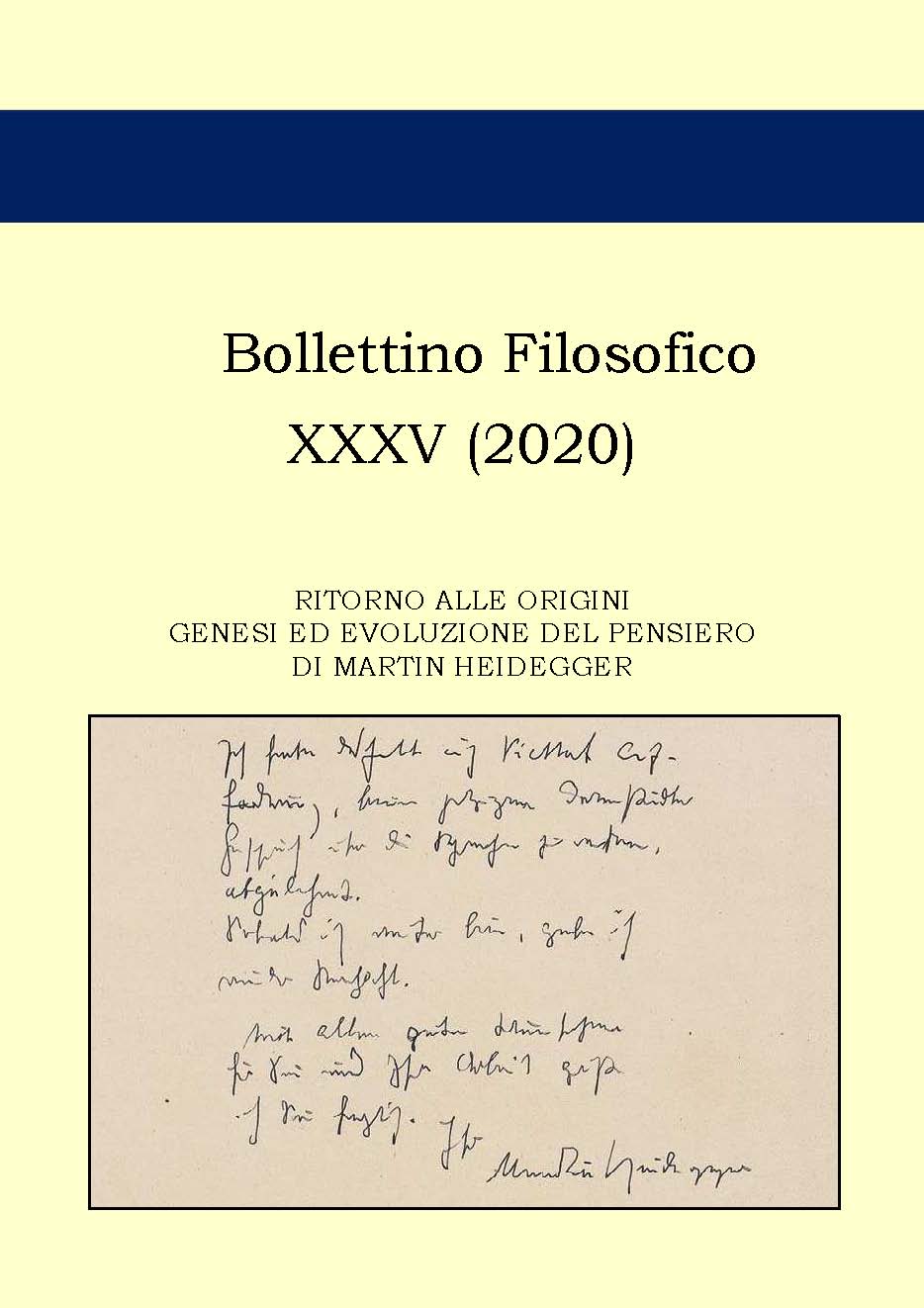The Pragmatic and Transformative Dimension of Heidegger’s Early Method of Formal Indication
DOI:
https://doi.org/10.6093/1593-7178/7440Abstract
In the present contribution, I explore the notion of formal indication in Heidegger’s early Freiburg Lectures, in order to emphasize that its pivotal meaning both as a method and an expression lies in its preparing and awaking a transformation of the reader’s experience. For this purpose, I first of all draw attention to the constitutive ambivalence between the phenomenon of factical life experience and philosophy, so as to further examine the difference between formally indicative “expressions” and “order-concepts”. Finally, I analyze the notion of formal indication in the 1921-22 Lecture “Phenomenological Interpretations of Aristotle”, so as to argue that formal indication can be conceived of as a pragmatic use of language, which works through practical negations and addresses readers. From this perspective, I claim that formal indication embodies a task to be accomplished by readers, since it points to a transformation of the reader’s experience.
Keywords: Factical Life Experience, Formal Indication, Heidegger, Pragmatics, Transformation
Downloads
Downloads
Published
How to Cite
Issue
Section
License
The author retains the copyright of his work whilst granting anyone the possibility “to reproduce, distribute, publicly communicate, publicly exhibit, display, perform and recite the work”, provided that the author and the title of the journal are cited correctly. When submitting the text for publication the author is furthermore required to declare that the contents and the structure of the work are original and that it does not by any means compromise the rights of third parties nor the obligations connected to the safeguard of the moral and economic rights of other authors or other right holders, both for texts, images, photographs, tables, as well as for other parts which compose the contribution. The author furthermore declares that he/she is conscious of the sanctions prescribed by the penal code and by the Italian Criminal and Special Laws for false documents and the use false documents, and that therefore Bollettino Filosofico is not liable to responsibilities of any nature, civil, administrative or penal, and that the author agrees to indemnify and hold Bollettino Filosofico harmless from all requests and claims by third parties.

